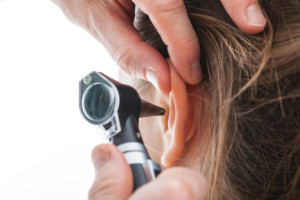Meniere’s Disease: Symptoms, Causes and Treatments
Meniere’s disease (MD) was discovered in the 19th century. The disease is characterised by disorders that affect the inner ear with an inconsistent hearing loss on the affected patient. Most records of the disease cases show that it only affects one ear.
Symptoms of Meniere’s Disease
- Hearing loss that comes in a fluctuating manner, and it may be temporary or can also end up as a permanent loss;
- Pressure in the ear may be experienced whereby the ear feels like it is filled up with air or something;
- Experience of ringing sounds in the ears that are not happening in reality, which may also include buzzing, hissing, roaring and whistling sounds;
- The patient may even experience loss of balance such that the to them, the environment feels like a spinning ground. Such a condition is known as vertigo.
Causes of Meniere’s Disease
There are various causes that lead to the disorder. The following are the possible combination of causes of Meniere’s disease:
- Viral infections such as neurotropic virus may attack the endolymphatic sac leading to MD;
- The disease may be genetically acquired; there are cases where it has affected close family members: it may be genetically inherited;
- Head related problems may also affect the hearing;
- Migraine condition can also cause this problem since it is a condition that causes pulsing feeling and affects one side of the head;
- Irregular immune system operation, especially in the ear section, may lead to the hearing loss problem;
- Stress may lead to the eruption of such feelings in the ear;
- Excessive fluids left in the passages of the sound in the ear are known to have funny sounding effects. The fluids may also form a blockage in the inner ear, leading to the production of some sounds from within;
- Allergies are also indirectly linked to causing the Meniere’s disease whereby records show that 67 percent of patients affected by the disorder are allergic to different foods.
The Diagnosis and Treatment
Meniere’s condition requires the doctors to conduct several tests, including blood tests on the patient. The doctors will also take concern about the patient’s medical records. They use information obtained determines the severity of the condition. However, the disease does not have a direct cure. Therefore, doctors have to treat other conditions affecting the patient on controlling the disease.
Patients are given medication such as vestibular suppressants, channel brokers, immune suppressants as well as steroids. The doctors may suggest for a surgical operation depending on the condition.
Patients are also advised to control eating habits in the efforts to overcome the problem. Such habits include low salt intake, stress control, small food amount(but intake in several times a day) and decrease stimulant intake among others.
Chiropractic Control of the Meniere’s Disease
Chiropractic is a well-known treatment option for any musculoskeletal problem and subluxation of upper cervical. The application of the treatment in dealing with Meniere’s disease provides effective results. At an Ealing chiropractor they offer their patients with treatment options tailored to address individual’s health condition specifically. With their extensive team of qualified chiropractors, patients have a good chance of overcoming Meniere’s disease.


